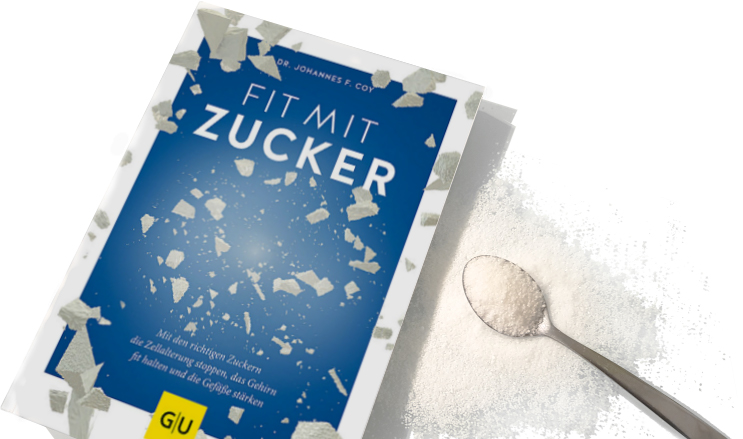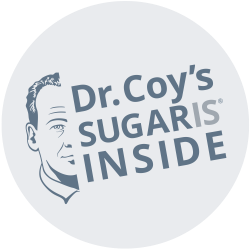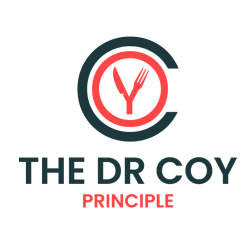Learn more about Dr. Coy and the creation of his sugar solutions.
Dr Johannes Coy is a world-renowned scientist whose research focuses on the health benefits of sugar awareness. Dr Coy has made a number of important genetic discoveries which change our understanding of cancer and nutrition and make him the leading expert on sugars.

Book: Fit with Sugar, by Dr Johannes Coy
Dr Coy has written several books about cancer nutrition. His latest book, Fit with Sugar, is now available. In this book, you’ll discover the evolutionary role of sugar in the human body. Consuming too much conventional sugar isn’t good for our health, but with the right sugars, we can stop cell ageing, keep the brain fit, protect against diseases and switch on fat burning. Find out how you can maintain physical and mental performance using natural low- glycaemic sugars and sugar substitutes. The book includes many delicious recipes for cakes, snacks and desserts, so you can implement a sugar-conscious diet easily and intelligently, without giving up sweet treats.
Buy the book: Cancer-Fighting Diet: Diet and Nutrition Strategies to Help Weaken Cancer Cells and Improve Treatment, by Dr Johannes Coy.
Research & Resources
The beneficial effects of D-allose and D-allulose on the brain under ischemic stroke and obese-insulin resistant conditions: evidence from in vitro to clinical studies
This study reviews current evidence on the neuroprotective effects of rare sugars, particularly D-allose and D-allulose, under both normal and pathological brain conditions such as ischemic stroke and obesity-induced insulin resistance. In vitro findings show that these sugars reduce oxidative stress, inflammation, and neuronal apoptosis by modulating pathways like Gal-3/TLR4 and the unfolded protein response (UPR). In vivo animal models confirm these benefits, with improvements in cognitive and motor function, reduced brain infarct size, and enhanced insulin signaling in the hippocampus. A supporting clinical fMRI study also suggests that allulose uniquely influences brain reward responses and satiety compared to other sweeteners. Overall, the study highlights the therapeutic potential of rare sugars for brain-related disorders and calls for further clinical investigation.
Trehalose alleviates oxidative stress-mediated liver injury and Mallor-Denk body formation via activating autophagy in mice
Trehalose, a disaccharide, has been shown to induce autophagy and reduce cellular stress in various disease models. However, its effects in hepatocytes have not been fully investigated. In a study using mice treated with 3,5-diethoxycarbonyl-1,4-dihydrocollidine (DDC), trehalose was found to induce autophagy, reduce endoplasmic reticulum stress, oxidative stress, Mallory-Denk body formation, and apoptosis in hepatocytes. Electron microscopy revealed the formation of autolysosomes in close proximity to the Mallory-Denk bodies. These findings suggest that trehalose has the potential to be a therapeutic agent for liver diseases associated with oxidative stress by activating autophagy.
Trehalose improves traumatic brain injury-induced cognitive impairment
This study investigated the potential of trehalose, a natural sugar, to treat Alzheimer’s disease (AD) in a mouse model. The study found that trehalose improved the cognitive performance of mice through mechanisms that were independent of the reduction of Aβ protein or activation of autophagy. Trehalose increased the levels of proteins associated with synapses and neurogenesis, suggesting a neuroprotective effect. The study suggests that trehalose may be a potential treatment option for AD and other neurodegenerative disorders.
Trehalose Improves Cognition in the Transgenic Tg2576 Mouse Model of Alzheimer’s Disease
This study investigated the therapeutic effects of trehalose in a mouse model of Alzheimer’s disease (AD). Trehalose treatment improved cognitive performance without significant changes in amyloid-β protein levels or autophagy. There was also no significant alteration in metal levels. However, trehalose treatment led to increased levels of synaptophysin, doublecortin, and progranulin, indicating enhanced synaptic function and neurogenesis. These findings suggest that trehalose may have neuroprotective mechanisms independent of traditional pathways, making it a potential therapeutic option for AD and other neurodegenerative disorders.
Human TKTL1 implies greater neurogenesis in frontal neocortex of modern humans than Neanderthals
This study investigated the role of the TKTL1 gene in neocortex development and its impact on neuroprogenitor numbers. The researchers found that the human-specific amino acid substitution in TKTL1 (hTKTL1) increased the abundance of basal radial glia (bRG), a type of neuroprogenitor associated with increased cortical neuron production. The Neanderthal variant of TKTL1 (aTKTL1) did not have the same effect. Additionally, hTKTL1 promoted the synthesis of specific membrane lipids required for bRG growth. The findings suggest that hTKTL1 contributes to greater neocortical neurogenesis in modern humans, particularly in the frontal lobe, compared to Neanderthals.
Scaling brain neurogenesis across evolution
The neocortex, responsible for cognitive abilities, has expanded and folded in mammals, partly due to basal radial glial cells (bRGs). A study by Pinson et al. reveals that a variant of transketolase-like protein 1 (TKTL1) in modern humans increases the number of bRGs and upper layer projection neurons. This genetic change may contribute to cognitive differences between modern humans and extinct archaic humans.
Trehalose alleviates oxidative stress-mediated liver injury and Mallor-Denk body formation via activating autophagy in mice
This study investigated the effects of trehalose on autophagy, ER stress, oxidative stress-mediated cytotoxicity, and Mallory-Denk body (MDB) formation in hepatocytes. The study used a mice model with 3,5-diethoxycarbonyl-1,4-dihydrocollidine (DDC) treatment and administered trehalose through intraperitoneal injection. The results showed that trehalose induced autophagy, reduced ER stress, oxidative stress, MDB formation, and apoptosis in hepatocytes. Electron microscopy revealed autolysosome formation close to the MDBs. These findings suggest that trehalose has the potential to be a therapeutic agent for oxidative stress-related liver diseases by activating autophagy.
Trehalose improves traumatic brain injury-induced cognitive impairment
In this study, researchers investigated the therapeutic potential of trehalose in a mouse model of traumatic brain injury (TBI). Trehalose, known for its neuroprotective properties, was found to improve behavioral performance in TBI mice without affecting lesion volume or biometals. However, trehalose treatment resulted in an upregulation of synaptic proteins and neurotrophic factors in the contralateral cortex. These findings suggest that trehalose could be an effective treatment option for TBI and other central nervous system disorders
Trehalose Improves Cognition in the Transgenic Tg2576 Mouse Model of Alzheimer’s Disease
This study investigated the therapeutic effects of trehalose in a mouse model of Alzheimer’s disease (AD). Trehalose treatment improved cognitive performance without significant changes in amyloid-β protein levels or autophagy. There was also no significant alteration in metal levels. However, trehalose treatment led to increased levels of synaptophysin, doublecortin, and progranulin, indicating enhanced synaptic function and neurogenesis. These findings suggest that trehalose may have neuroprotective mechanisms independent of traditional pathways, making it a potential therapeutic option for AD and other neurodegenerative disorders.
Scaling brain neurogenesis across evolution
The neocortex, responsible for cognitive abilities, has evolved and expanded across mammals. Humans’ advanced cognitive abilities are attributed to neocortex size and structure. Basal radial glial cells (bRGs) play a role in neocortex expansion and folding. A study by Pinson et al. found that a variant of transketolase-like protein 1 (TKTL1) in modern humans increases the number of bRGs and upper layer projection neurons. This genetic change may contribute to cognitive differences between modern humans and extinct archaic humans.
Human TKTL1 implies greater neurogenesis in frontal neocortex of modern humans than Neanderthals
This scientific article explores the differences in neurogenesis (the formation of new neurons) between modern humans and Neanderthals. Although Neanderthals had brains similar in size to modern humans, researchers discovered a genetic difference in a specific protein called transketolase-like 1 (TKTL1). The modern human variant of this protein, hTKTL1, was found to increase the abundance of basal radial glia (bRG) during neocortex development. These bRG cells play a crucial role in generating neurons. However, the Neanderthal variant of the protein did not have the same effect on bRG. The study suggests that modern humans have a different process of neurogenesis compared to Neanderthals, which may have contributed to unique characteristics of the human brain.
Get in touch with Intelligent Sugar
Got a question about Dr Coy’s sugars? Contact info@intelligentsugar.info
If you have a question about a specific health condition, please speak to your doctor.

